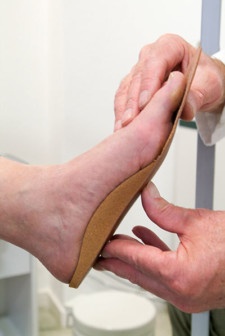For appointment call: (936) 760-1200
- Dr. Eric Pack
- Services
- Foot & Ankle Pain
- Achilles Tendinitis/Tendinosis
- Ankle Fracture
- Ankle Sprain
- Arthritis of the Foot and Ankle
- Broken Fifth Metatarsal
- Bunions
- Chronic Lateral Ankle Pain
- Claw Toe
- Corns and Calluses
- Entrapment Neuropathy
- Extensor Tendinitis
- Flat Feet in Children (Pediatric Flatfoot)
- Flat Feet or Fallen Arches
- Gout
- Hallux Rigidus
- Hammer Toe and Mallet Toe
- Heel Fracture
- Intertarsal Joint Arthritis
- Lateral Column Syndrome
- Medial Calcaneal Neuritis
- Metatarsalgia
- Morton’s Neuroma
- Osteochondral Lesion
- Peripheral Neuropathy
- Peroneal Tendonitis
- Peroneal Tendinosis
- Pilon Fracture
- Plantar Fasciitis and Heel Spurs
- Sesamoid Injuries
- Tarsal Tunnel Syndrome
- Talus Fracture
- Toe Fracture
- Toe Sprain
- Turf Toe
- Ingrown Toenails
- Sports Injuries
- Diabetes Foot Care
- Surgery Second Opinions
- Telemed
- Foot & Ankle Pain
- Specialties
- Location
- Reviews
- For Patients
- Blog
- Broadcasting
- Dr. Eric Pack
- Services
- Foot & Ankle Pain
- Achilles Tendinitis/Tendinosis
- Ankle Fracture
- Ankle Sprain
- Arthritis of the Foot and Ankle
- Broken Fifth Metatarsal
- Bunions
- Chronic Lateral Ankle Pain
- Claw Toe
- Corns and Calluses
- Entrapment Neuropathy
- Extensor Tendinitis
- Flat Feet in Children (Pediatric Flatfoot)
- Flat Feet or Fallen Arches
- Gout
- Hallux Rigidus
- Hammer Toe and Mallet Toe
- Heel Fracture
- Intertarsal Joint Arthritis
- Lateral Column Syndrome
- Medial Calcaneal Neuritis
- Metatarsalgia
- Morton’s Neuroma
- Osteochondral Lesion
- Peripheral Neuropathy
- Peroneal Tendonitis
- Peroneal Tendinosis
- Pilon Fracture
- Plantar Fasciitis and Heel Spurs
- Sesamoid Injuries
- Tarsal Tunnel Syndrome
- Talus Fracture
- Toe Fracture
- Toe Sprain
- Turf Toe
- Diabetes Foot Care
- Ingrown Toenail Removal
- Sports Injuries & Conditions
- Surgery Second Opinions
- Foot & Ankle Pain
- Specialties
- Locations
- Reviews
- For Patients
- Blog
- Broadcasting



